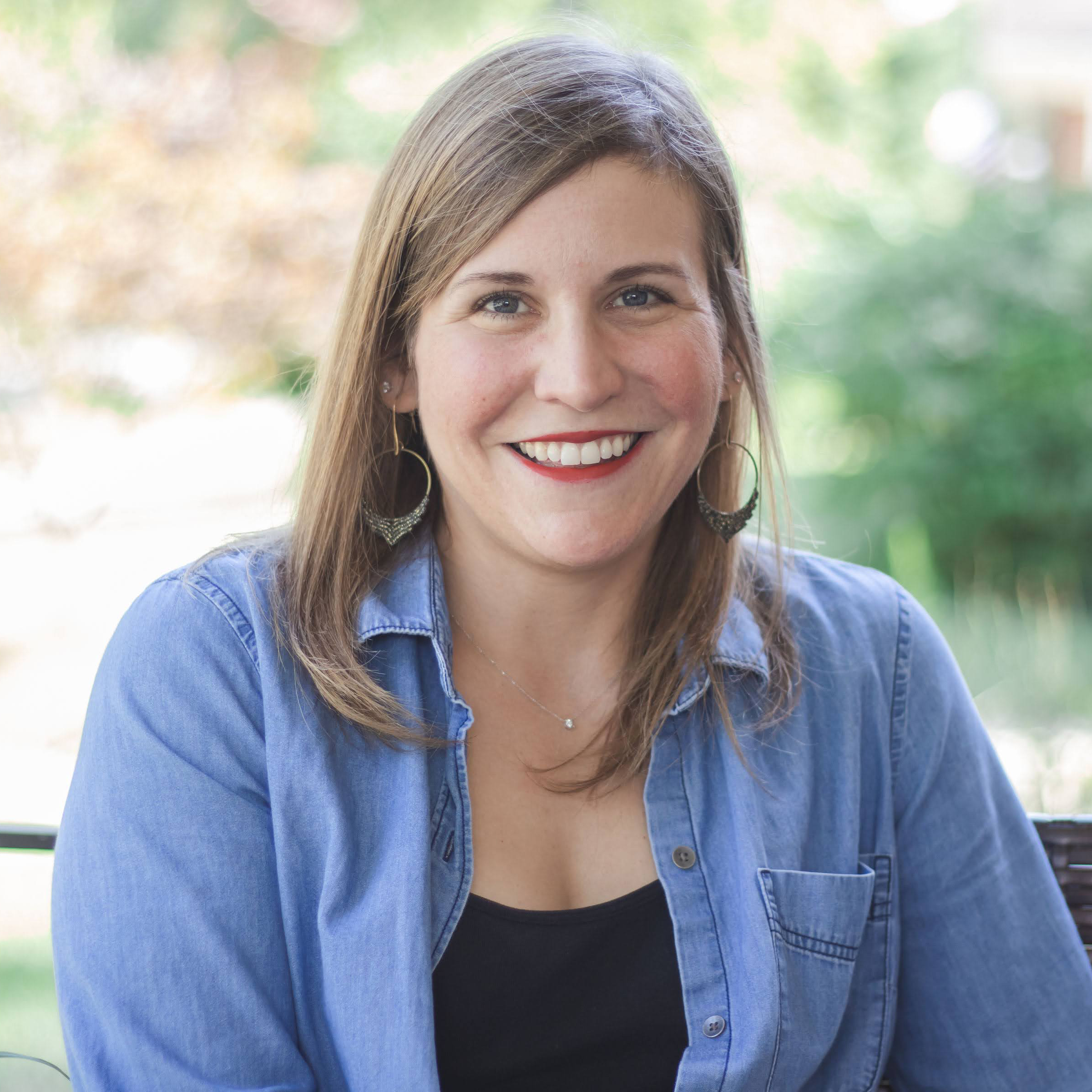
Melanie Eccles
Melanie Eccles is an ordained Free Methodist elder who currently serves Evergreen Church in Ypsilanti, Michigan, as associate pastor of spiritual formation. A two-time Spring Arbor University graduate, she earned a B.A. in philosophy/religion (2008) and an M.A. in spiritual formation and leadership (2018). Melanie and her husband, Kevin (SAU 2008, NES 2014) are delighted to be raising their daughters, Kirsten and Junia. Together they love liturgical worship, hosting gatherings around their Neighbors Table, and living a hyperlocal lifestyle. This article is adapted from her sermon “Why the Bible?”
By Melanie Eccles
The Free Methodist Way expresses values that shape the identity of the Free Methodist Church USA. This expression begins with life-giving holiness (“a gift that liberates us for life that is truly life by delivering us from the destructive power of sin”) and concludes with God-given revelation: “We hold unwaveringly to our conviction that the Bible is the inspired Word of God and our final authority in all matters of faith and practice.”
Before we get into the specific revelation of Scripture, let’s start by asking: How does our holy God reveal God’s self?
God reveals God’s self in Creation.
Psalm 19:1-4 sings, “Heaven is declaring God’s glory; the sky is proclaiming his handiwork. One day gushes the news to the next, and one night informs another what needs to be known. Of course, there’s no speech, no words — their voices can’t be heard — but their sound extends throughout the world; their words reach the ends of the earth. God has made a tent in heaven for the sun” (CEB).
Paul in Romans 1:20 argues, “For since the creation of the world God’s invisible qualities — his eternal power and divine nature — have been clearly seen, being understood from what has been made, so that people are without excuse.”
We can look around at the created world and see God.
God reveals God’s self in Jesus, the Word became flesh.
The beloved disciple writes in John 1, “In the beginning was the Word, and the Word was with God, and the Word was God. He was with God in the beginning. Through him all things were made; without him nothing was made that has been made. In him was life, and that life was the light of all humankind. The light shines in the darkness, and the darkness has not overcome it. … The Word became flesh and made his dwelling among us. We have seen his glory, the glory of the one and only Son, who came from the Father, full of grace and truth.”
In Colossians 1:15-20, the Apostle Paul waxes poetic about God revealing God’s self in Jesus. “The Son is the image of the invisible God, the firstborn over all creation. For in him all things were created: things in heaven and on earth, visible and invisible, whether thrones or powers or rulers or authorities; all things have been created through him and for him. He is before all things, and in him all things hold together. And he is the head of the body, the church; he is the beginning and the firstborn from among the dead, so that in everything he might have the supremacy. For God was pleased to have all his fullness dwell in him, and through him to reconcile to himself all things, whether things on earth or things in heaven, by making peace through his blood, shed on the cross.”
God reveals God’s self to us in the presence of the Holy Spirit.
In John 14 and John 16, Jesus Himself told His followers that they would continue to have fellowship with God through the presence of the Holy Spirit. “The Companion, the Holy Spirit, whom the Father will send in my name, will teach you everything and will remind you of everything I told you” (John 14:26 CEB). “But when he, the Spirit of truth, comes, he will guide you into all the truth. He will not speak on his own; he will speak only what he hears, and he will tell you what is yet to come” (John 16:13).
We see God revealing God’s self to us through the church, the body of Christ.
We — you and me — are to become the love of God for one another. Paul writes in 1 Corinthians 12:24-27, “But God has put the body together, giving greater honor to the part with less honor so that there won’t be division in the body and so the parts might have mutual concern for each other. If one part suffers, all the parts suffer with it; if one part gets the glory, all the parts celebrate with it. You are the body of Christ and parts of each other” (CEB).
And that brings us to the Holy Scriptures, the God-given revelation in our laps.
God reveals God’s self to us through the Bible.
What exactly is the Bible? According to our Book of Discipline, “The Bible is God’s written Word, uniquely inspired by the Holy Spirit. It bears unerring witness to Jesus Christ, the living Word. As attested by the early church and subsequent councils, it is the trustworthy record of God’s revelation, completely truthful in all it affirms. It has been faithfully preserved and proves itself true in human experience.”
Who is the Bible for?
From the origin of these parchments, the words of Scripture have been intended for the ears of all of God’s people. Unlike me with eight copies of this sacred book on my shelf, most God-followers throughout history never had direct access to the text. This is why gathering together was and will always be essential — the public reading of Scripture is part of our God-life. These living and active words of the Bible are useful to every single person’s life.
_
“It is not a body of secret lore accessible only to an academic elite.” – Eugene Peterson
_
In Pastor (and Seattle Pacific University alumnus) Eugene Peterson’s work of translating the Bible into a modern-day vernacular (now known as The Message), he came to a new understanding of biblical reading and study. He was meeting with a group from his congregation, a gathering of average people with no higher education in biblical languages or interpretation: regular church folk. In “Eat This Book: A Conversation in the Art of Spiritual Reading,” Peterson recalled, “I shifted my style of teaching. Instead of informing them … I just gathered people together to read the text as we have it. … There is a fancy word for what became clear in these gatherings: perspicuity — the conviction that the Bible is basically readable as it is. It is not a body of secret lore accessible only to an academic elite. It is written plainly for plain men and women.”
The Bible speaks for itself.
Why read the Bible?
Both as a Free Methodist and as a lifelong follower of Jesus, I hold a strong conviction that reading and memorizing Scripture are crucial components to life with Jesus. It is through Scripture that we learn who Jesus is and what Jesus did and how we are to live a life of holiness like Him.
Through memorizing Scripture, our thoughts come into alignment with God’s holy thoughts. Our deepest formation is not quotes from movies, song lyrics, news headlines or family gossip. Our thoughts become formed by the holy God who is also called love. It changes how we think. In reading and studying Scripture, we encounter conviction and challenge to confess and change unhealthy habits. In Scripture, we join up with all the followers of Jesus through time and space, knowing we are part of a compelling narrative of abundant life with God. It is in Scripture that we find the reasons for the hope that we have.
_
“We believe that being grounded in God’s Word is essential for life in Christ and service in God’s kingdom.” – Bishop Matt Whitehead
_
As Bishop Matt Whitehead previously wrote for Light + Life, “Biblical illiteracy is a serious issue because anyone not grounded in the foundation of God’s Word begins to interpret societal issues, cultural trends, and even issues of church practice and discipline through views of the very culture and society with which the Bible often clashes. As Wesleyans, we believe that being grounded in God’s Word is essential for life in Christ and service in God’s kingdom.”
If you consider yourself a follower of Jesus, stop and ask yourself right now: Am I biblically literate? How much time do I spend reading the Bible outside of the Sunday morning gathering?
Have you heard of the phrase “You are what you eat”? In “Eat This Book,” Peterson noted, “Readers become what they read. If Holy Scripture is to be something other than mere gossip about God, it must be internalized.”
Peterson started with this vivid image from Revelation 10:8-11 where we read: “The voice out of Heaven spoke to me again: ‘Go, take the book held open in the hand of the Angel astride sea and earth.’ I went up to the Angel and said, ‘Give me the little book.’ He said, ‘Take it, then eat it. It will taste sweet like honey, but turn sour in your stomach.’ I took the little book from the Angel’s hand and it was sweet honey in my mouth, but when I swallowed, my stomach curdled. Then I was told, ‘You must go back and prophesy again over many peoples and nations and languages and kings’” (MSG).
The Bible can be sweet and sour. The Bible doesn’t sit well with us until it becomes part of our being and our doing. We must do more than merely listen to the words of Scripture. We must do more than take notes during the sermon. We must do more than one Bible study after another Bible study. We must eat this book with the hunger of life-giving holiness.
Eating the book, the God-given revelation of the Holy Bible, means ingesting it, chewing over it, savoring it, and then allowing it to be digested, to become a part of our being, to change us from the inside.
_
“This type of reading sets aside the need for information and instead desires transformation.”
_
“Christians feed on Scripture,” Peterson writes. “Holy Scripture nurtures the holy community as food nurtures the human body. Christians don’t simply learn or study or use Scripture; we assimilate it, take it into our lives in such a way that it gets metabolized into acts of love, cups of cold water, missions into all the world, healing and evangelism and justice in Jesus’ name, hands raised in adoration of the Father, feet washed in company with the Son.”
Friends, we need to be people of holiness who are formed by Scripture, this God-given revelation. We need to go beyond hearing and studying, and start taking and eating. Information is well and good. But the Bible as living and active will change our lives.
Read your Bible every day, and let the Bible read you. This type of reading sets aside the need for information and instead desires transformation.
In Peterson’s words: “Come to the Table and eat this book, for every word in the book is intended to do something in us, give health and wholeness, vitality and holiness to our souls and body.” +

Melanie Eccles
Melanie Eccles is an ordained Free Methodist elder who currently serves Evergreen Church in Ypsilanti, Michigan, as associate pastor of spiritual formation. A two-time Spring Arbor University graduate, she earned a B.A. in philosophy/religion (2008) and an M.A. in spiritual formation and leadership (2018). Melanie and her husband, Kevin (SAU 2008, NES 2014) are delighted to be raising their daughters, Kirsten and Junia. Together they love liturgical worship, hosting gatherings around their Neighbors Table, and living a hyperlocal lifestyle. This article is adapted from her sermon “Why the Bible?”









